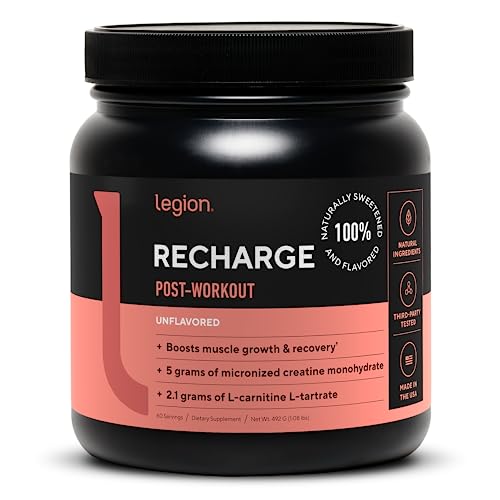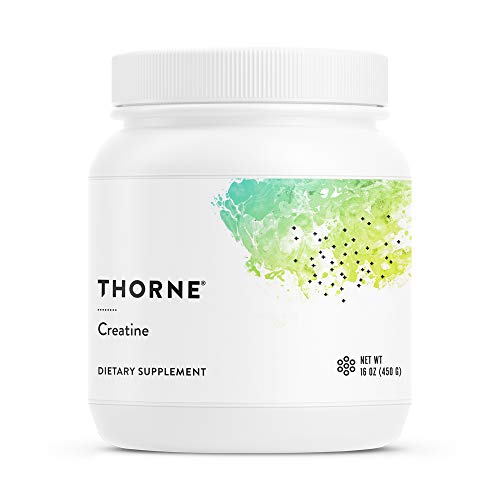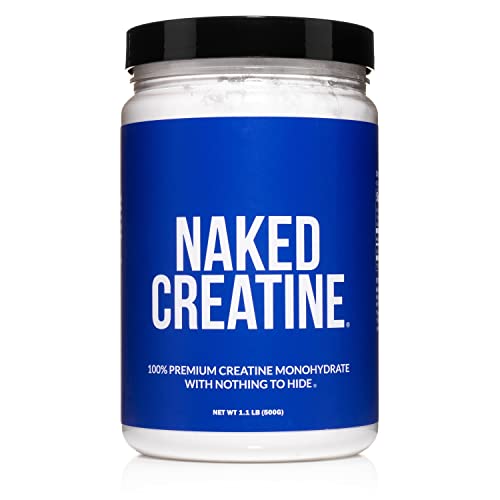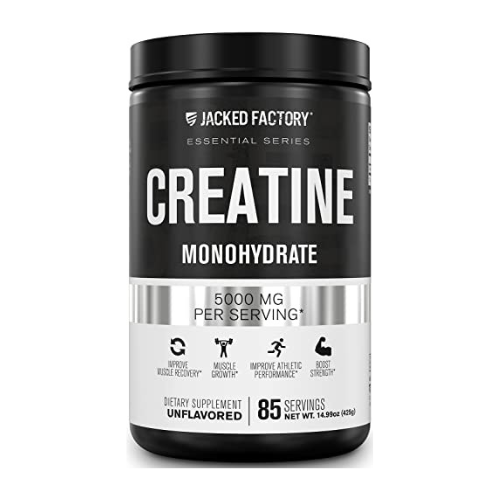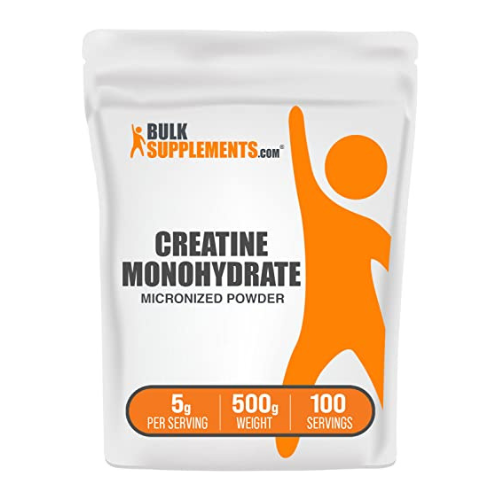Creatine for Runners: 4 Benefits That Enhance Your Speed
Reviewed by: Olexandr Maximenko (Sports Nutritionist, MSc)
Are you looking for an effective way to boost your running speed and endurance? Creatine for runners has been used for decades as a performance-enhancing supplement. This blog post will provide insight into the potential benefits of creatine for running and tell you all the details you need to know.
Does creatine help with running? What is the best form of creatine? Should runners take creatine before or after exercise? Discover how creatine can optimize your runs today! Read on to understand more about the efficacy of this sports supplement in unlocking your athletic potential.
why should you take creatine for high-intensity runs?
Creatine is a natural compound found in the body that helps to fuel muscular energy and power during exercise. It can improve high-intensity exercise performance and enhance muscle endurance, helping you sustain higher intensity runs over longer periods of time while reducing oxidative damage caused by intense training.
What Is Creatine?
Creatine is a natural compound found in the body that helps to fuel muscular energy and power during exercise. It comes in several forms, including creatine monohydrate, which is the most commonly studied form of creatine. It has been shown to increase muscle strength, power, and performance for resistance-trained athletes.
Other variations include:
- Creatine ethyl ester (CEE) for increased absorption into cells.
- Creatine hydrochloride (HCl), known to be more soluble than other forms.
- Buffered creatine with malic acid, typically used by those who have trouble digesting regular creatine.
- Micronized creatine monohydrate, which consists of smaller particles, making it easier on the stomach.

What Is the Best Creatine for Running?
Supplements containing creatine monohydrate are the most studied and effective products that have been used to increase performance in runners. This form of creatine supplies the body with phosphocreatine, which can be broken down into adenosine triphosphate (ATP). This is the primary source of energy during short, intense bursts of activity like sprinting or weight lifting.
Scientific Support for the Effect of Creatine on the Bodies of Runners
Creatine is a naturally occurring substance found in our muscle cells. Its primary role is to store energy and facilitate the transfer of that energy during short, intense bursts of activity.
For athletes who require increased speed or muscle strength, such as runners, creatine supplementation can be beneficial. Studies have shown that supplementing with creatine can improve high-intensity exercise performance. It also can enhance muscle endurance, allowing runners to maintain higher levels of intensity for longer periods, and may also aid in faster recovery after exercise.
Creatine monohydrate has been extensively studied and demonstrated positive effects on increasing lean muscle mass, as well as improving strength levels and reducing fatigue.
Is Creatine Good for Runners?
Creatine phosphate helps create ATP, a molecule that supplies energy during vigorous exercise. Thus, supplementing with creatine helps provide the body with additional energy to fuel athletic performance and reduce fatigue levels in runners.
Not only does taking creatine benefit sprint performances, but it also aids with long-distance events by enhancing recovery. Following strenuous activities like long-distance runs, muscles need time to restore their glycogen stores or else they have an elevated risk of soreness and injury.
A study showed that, after 10 days of taking creatine, test subjects had higher phosphocreatine concentrations (PCr) in the blood following a 35-kilometer run than those who did not take it. This suggests quicker post-exercise recovery, as well as improved endurance while racing over distances lasting longer than 90 minutes.
4 Benefits of Creatine for Runners
Taking creatine supplements can help runners of all levels boost their performance and gain a competitive edge. Let’s discuss the benefits in more detail.
1. Increased Speed and Power
Studies have demonstrated that creatine supplementation has the potential to increase the speed and power output of runners and improve their overall performance. As it provides energy for muscles, creatine can result in greater force production, increased strength, more fatigue resistance, and improved overall endurance.
Research studies have also suggested that creatine enhances anaerobic capacity by improving oxygen delivery to the muscles that are active during runs, which results in faster speeds over longer distances by significantly reducing muscular pain and fatigue.
2. Improved Muscle Strength and Endurance
Studies have indicated that creatine supplements can help runners at all levels improve their athletic performance. Research has shown that taking creatine daily prior to exercise may be beneficial for improving both endurance and distance running times in recreational and competitive runners alike.
Creatine increases ATP production from within the cells, resulting in increased maximal muscle force output and enabling greater sprint speeds during intervals or longer runs up hills.
3. Enhanced Recovery and Reduced Muscle Damage
Supplementing with creatine has been shown to significantly improve performance during high-intensity exercise by increasing speed and power while also decreasing fatigue. It has also been proven to reduce overall muscle damage caused by intense physical activity. Studies have demonstrated that supplementing with creatine can decrease the occurrence of muscle cramping, heat illness, and dehydration in athletes.
Additionally, research suggests it helps improve recovery time after strenuous exercise, resulting in fewer days needed between workouts. This could be helpful for busy runners trying to maintain their training schedules amid competitive commitments.
4. Increased Muscle Mass and Energy Levels
Creatine has been studied in athletes for its powerful muscle-building benefits, including increased power output. For runners, this translates to increased speed and enhanced muscular performance during long runs.
Studies show that taking creatine helps increase your lean muscle mass by encouraging protein synthesis inside of the muscle cells and providing energy when needed.
Is Creatine Bad for Runners? 3 Main Disadvantages
Creatine can pose some risks to your health. These include:
1. Water Retention and Weight Gain
Creatine supplements can cause water retention and weight gain in runners. This is due to the increase in total body fluid resulting from creatine supplementation, which can lead to swelling, edema, bloating, and an overall increase in body mass.
Although these side effects are more commonly experienced during the loading phase when supplementing with higher doses of creatine, some studies have reported a slight weight gain even after several weeks of maintenance dosing.
2. Gastrointestinal Issues
Some people supplementing with creatine may experience gastrointestinal side effects. This can include stomach discomfort, bloating, nausea, and diarrhea.
Each person reacts differently when consuming creatine. Understanding your individual response can help lead to positive results with no long-lasting adverse effects on the digestive system.
3. Potential Kidney Damage
There have also been concerns about creatine causing kidney damage, particularly in those with a history of kidney disease or conditions.
However, research has not clearly established a link between this side effect and creatine supplementation when taken at recommended doses. A case report suggests that individuals with existing nephrotic syndrome could experience adverse effects as a result of a high dosage of creatine supplementation, so you should always consult your healthcare provider before taking this supplement if you suffer from such preexisting conditions.
Does Creatine Have Side Effects?
While creatine supplementation is considered safe and approved by anti-doping organizations, it can have some side effects that should be considered. Some of the side effects associated with creatine use include muscle cramps and strains in rare cases.
To minimize risk, it’s important that runners ensure they stay well-hydrated while using creatine supplements.
Subscribe to Our Running Newsletter!
Get free running tips from renowned professional athletes and discounts from top-notch brands.
When Is the Best Time to Take Creatine for Running?
Those looking to reap the benefits of creatine for distance runners should consider taking it early in their training cycle and continuing its use up to race day. Timing is key, as taking creatine at the wrong time—too early or too late—can minimize its efficacy.

Pro Tip:
The general recommendation is to take 5g of creatine for marathon runners daily, split into two 2.5g doses with meals or snacks, about four weeks before a marathon. This can lead to improved muscle strength and endurance, which can improve performance when running distances greater than 26 miles.
Short-term gains in power and sprinting from taking this supplement may also be beneficial for runners in track races such as a 5k run. However, you don’t need to supplement for a long time to get the benefits of creatine for 5k runners.

Pro Tip:
A safe dosage is usually 5g four times per day, five days prior to a race. However, it’s best to talk with your physician or nutrition expert before proceeding with a supplementation program to ensure safety and obtain optimal results.
Research suggests that creatine supplementation may be beneficial for slow-pace runs and jogging. For those looking to increase running performance on slower-paced runs, creatine could potentially provide the needed boost with minimal side effects when taken in moderation.

Pro Tip:
Taking too much creatine, or taking it without proper hydration, has been linked to gastrointestinal issues such as nausea and cramping. It is important to consult a physician before starting any form of supplementation or adjusting your current routine.
Taking Creatine Before Running
Creatine can increase short-term energy capacity for activities like hill sprints, interval workouts, and fartlek runs. It has also been linked to increased muscle strength, power, and speed, as well as increased mental acuity and reduced fatigue while running.
Taking Creatine After Running
Taking creatine supplements after exercise can potentially have some benefits for runners. Creatine can reduce fatigue and speed up recovery time between sessions by reducing muscle damage, leading to faster recovery times.

How Much Creatine Can You Take Per Day?
The optimal dose of creatine monohydrate for runners varies based on the type and brand, but generally 2-5 grams per day is recommended for the maintenance phase, either throughout the day or after exercise. Although there are minimal side effects associated with taking this supplement, it is still important to follow recommended dosage guidelines in order not to risk any other health issues.
Here are some tips for taking creatine properly:
- Start with a loading phase: During the first week, take 20 grams of creatine per day, divided into four equal doses of 5 grams each.
- Switch to a maintenance phase: After the loading phase, take 2-5 grams of creatine per day to maintain your creatine levels.
- Mix it with water: Creatine is most effective when it’s dissolved in water. Mix it with a glass of water or your favorite sports drink.
- Stay hydrated: Creatine can dehydrate you, so make sure you drink plenty of water throughout the day.
Remember, creatine is a supplement, not a magic pill. It should be used in combination with a healthy diet and exercise routine for best results.
Top 5 Best Creatine for Runners
Here are the five best creatine supplements for runners to try.
1. LEGION Recharge Post Workout Supplement
This is an all-natural post-workout drink specifically designed to help athletes maximize their workouts and enhance both speed and endurance. This supplement contains pure creatine monohydrate for better muscle build and recovery.
Post Workout Supplement
Containing 5 grams of creatine monohydrate per serving, Recharge helps runners recover faster from strenuous exercise, while also increasing muscle strength and power for improved performance.
Pros:
- Delicious zero-sugar flavors.
- Shortens recovery time.
- Boosts muscle power and endurance.
Cons:
- Some users don’t like Stevia aftertaste.
2. Thorne Creatine – Creatine Monohydrate
This form of creatine monohydrate is NSF certified for sport, ensuring the highest standardized levels of quality, safety, and accuracy. Increased speed and power, improved muscle strength and endurance, and enhanced recovery times all make Thorne Creatine an ideal choice for runners looking to gain performance enhancement.
Creatine Monohydrate
This supplement promotes lean body mass. With more energy received due to creatine you will improve your muscle endurance and capacity. Thorne is recommended by champions and trusted by 100+ pro teams.
Pros:
- Increases muscle endurance and capacity.
- Easy to digest.
- Benefits your brain.
Cons:
- Unflavored.
3. NAKED Nutrition Pure Micronized Creatine Monohydrate
The Naked Nutrition Creatine supplement is a highly recommended choice for athletes who want to improve their running stamina and strength. It has no artificial sweeteners, flavors or colors.
Creatine Monohydrate
NAKED Nutrition Pure Micronized
Made from 100% pure creatine monohydrate with no added fillers or preservatives, this formula promises non-GMO, soy-free, gluten-free benefits, as well as 5 grams of creatine monohydrate per serving.
Pros:
- Dissolves quickly in all drinks.
- Best for digestion.
- Fast absorption.
Cons:
- Unflavored.
4. Jacked Factory Creatine Monohydrate Powder
This supplement contains only 100% pure micronized creatine monohydrate. It contains no artificial sweeteners, flavors or colors; it’s non-GMO, soy free and gluten free.
Monohydrate Powder
This unflavored powder contains pure, micronized creatine monohydrate, which helps boost energy levels in runners before or during runs.
This type of creatine also aids with improving muscular strength while jogging or running longer distances, allowing you to go further than usual with ease.
Pros:
- Supports muscle growth.
- Aids in faster recovery.
- Improves endurance.
Cons:
- Unflavored.
5. BULKSUPPLEMENTS.COM Creatine Monohydrate Powder
This pure and unflavored supplement is perfect for muscle mass, energy and endurance boost. It’s manufactured according to cGMP Standards to ensure the highest quality of the product.
Monohydrate Powder
This form of creatine monohydrate powder is an effective supplement for muscle building, weight gain, energy boosts, and anaerobic strength.
It can also reduce muscle damage from exercise while providing greater recovery speeds and increased muscle mass and energy levels during workouts.
Pros:
- Supports brain and cognitive function.
- Micronized for better digestion.
- Fast absorption.
Cons:
- Unflavored.
Frequently Asked Questions About Creatine for Runners
Is creatine a steroid?
No, creatine is not a steroid. Creatine is a naturally occurring compound found in the body and certain foods, such as eggs, meat, fish, and poultry. It can help runners improve their speed without risking any doping violations that come with taking illegal steroids.
Does creatine make you a faster runner?
Creatine has several beneficial effects for runners, including improved speed and power output and enhanced recovery. It may also reduce muscle inflammation caused by long-distance running.
Final Thoughts on Creatine for Runners
There are many benefits of creatine endurance running, sprints, and even jogging. It helps improve training sessions and leads to better overall endurance performance. Studies have shown that, when taken correctly, creatine can enhance power output and sprinting ability, both of which are essential for runners in track events and other races.
Furthermore, creatine may help reduce muscle damage and soreness, improve recovery times between workouts, and assist with thermoregulation during intense races such as marathons.
It is also worth experimenting with various types of creatine to maximize your sustainable long-term benefits.
Have you ever tried creatine for running? Please share your experience in the comments below.
Also read:
- Shoulder Pain While Running
- How Many Minutes Is 2 Miles
- Aerobic Running
- Running With Knee Bursitis
- Beans for Runners
- 8 Week 10K Training Plan
- Best Weighted Vests for Running
- Best Running Shoes for Heel Strikers
- Best Running Shoes For Achilles
- Best Running Insole
References:
- Creatine in Health and Disease // MSPI: https://www.mdpi.com/2072-6643/13/2/447
- International Society of Sports Nutrition position stand: safety and efficacy of creatine supplementation in exercise, sport, and medicine // PMC: https://www.ncbi.nlm.nih.gov/pmc/articles/PMC5469049/
- Creatine supplementation improves sprint performance in male sprinters // Wiley Online Library: https://onlinelibrary.wiley.com/doi/abs/10.1034/j.1600-0838.2001.011002096.x
- Effect of Oral Creatine Supplementation on Jumping and Running Performance // Thieme Connect: https://www.thieme-connect.com/products/ejournals/abstract/10.1055/s-2007-972648
- Creatine Supplementation // Current Sports Medicine Reports: https://journals.lww.com/acsm-csmr/fulltext/2013/07000/creatine_supplementation.10.aspx
- Effects of creatine supplementation on muscle power, endurance, and sprint performance // ResearchGate: https://www.researchgate.net/publication/11532625_Effects_of_creatine_supplementation_on_muscle_power_endurance_and_sprint_performance
- Side Effects of Creatine Supplementation in Athletes // Human Kinetics Journals: https://journals.humankinetics.com/view/journals/ijspp/1/4/article-p311.xml
- Effects of oral creatine loading on single and repeated maximal short sprints. // Europe PMC: https://europepmc.org/article/med/8599745
- Action of creatine intake on performance capacity of middle-distance runners // ResearchGate: https://www.researchgate.net/publication/301765472_Action_of_creatine_intake_on_performance_capacity_of_middle-distance_runners
If you have any questions or suggestions, you can contact us via email – [email protected]

